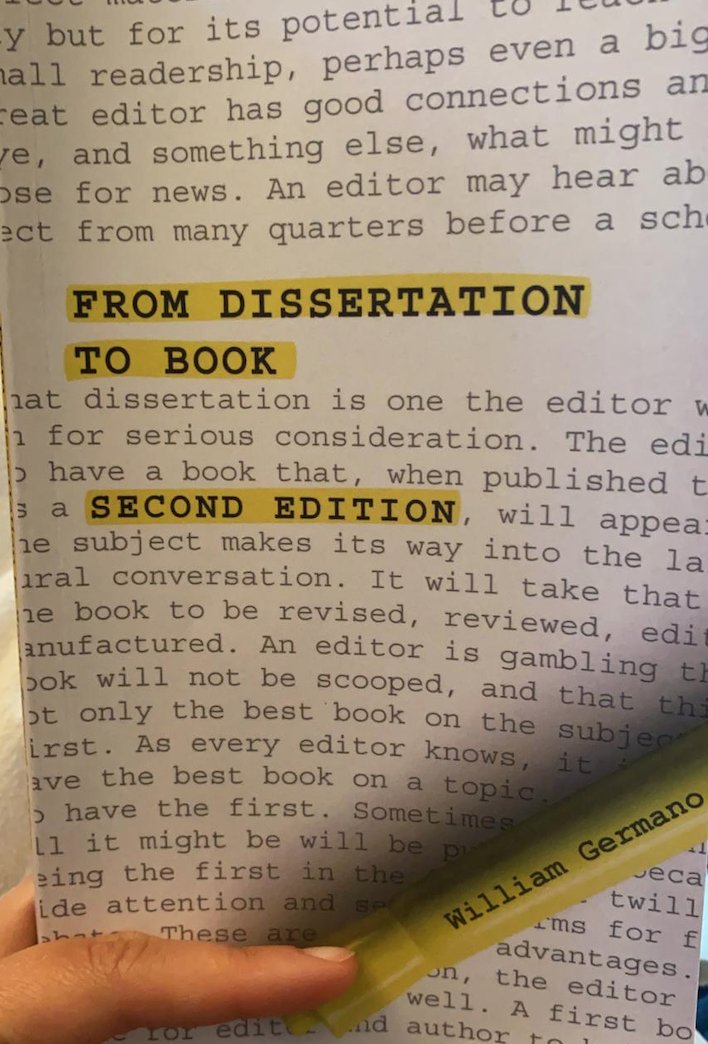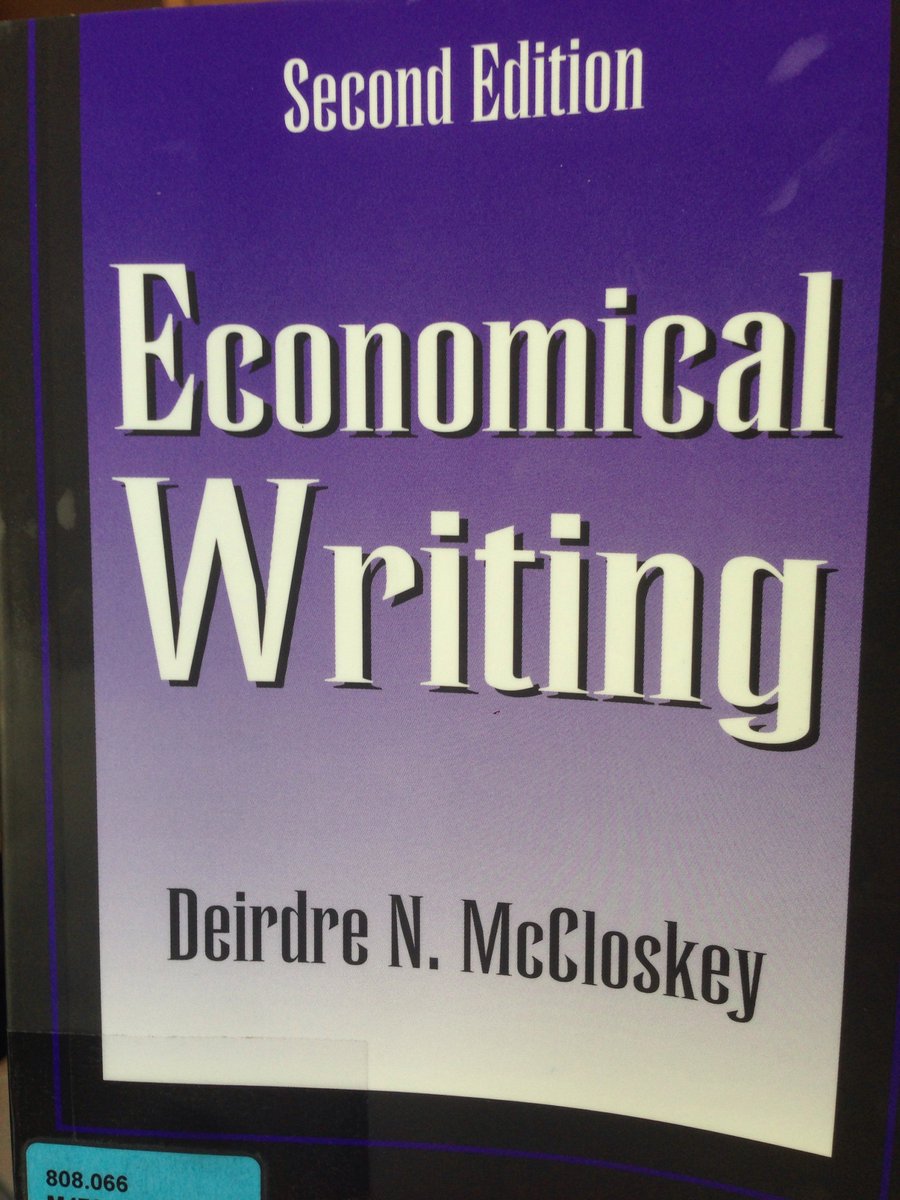1. "Writing isn't a record of your thinking. It is your thinking" (28) so you have to write to think, come up with ideas, research. etc. (1)

"Better by far to have an excellent command of mechanics, a sense of storytelling, and a clear understanding of your material" (32)
In my own words, do rather than defend (3)
I have a long way to go... (4)
Get it done, if you can't, move on.
"Remember that you didn't decide to become a professional scholar because you had only one narrow subject to mine endlessly" (38)
(5)
(6)
"Time (this is not a physicist speaking) is something we make. Make time to get the revision finished." (39)
(7)
(8)
"1. I believe in what I wrote
2. I want to share something that has value to others
3. I want a professional life in the academy" (43)
Do you hear cheerleaders in the background? I do.
#wecandothis
1. If it's not good, or you do not like it all something else, "do not resuscitate" (44). Move on to another project.
2. Publish one or several strong chapter(s) in a journal.
3. Publish dissertation as a book
(10)
there are different possibilities under the 3rd option:
A. your dissertation can be revised substantially or lightly
B. take one good idea in dissertation and do more research to write a book
C. divide dissertation in two and publish one or more books (44-45)
(11)
Identifying the audience and writing in an appealing way to the reader are both necessary. A book's components and narrative need to be clear and no book works if the author doesn't know when to stop talking
(12)
(13)
We need to take more risks. Don't be scared?!
(15)
I am guilty of this, so much!
It is not like doing a jigsaw puzzle. You need a schedule and deadlines.
(17)
Who agrees, who disagrees?
(18)
"Chapters are your pearl-like notes. Paragraphs are, too. Listening to your own writing out loud is the best way to hear what it sounds like"(95)
(19)
(20)
(21)
so take some time on that table of contents and titles of the book parts.
(22)
i.e. Create subheadings
"if you can write one terrific paragraph, you have it in you to write an entire book" (116)
(24)
This makes me realise that I have some way to go...
(25)
I struggle with this, so much. Fancy words do not make me (even look) more intelligent
(27)
(28)
(29)
(30)
(31)
(32)
(34)
(36)
end of thread



